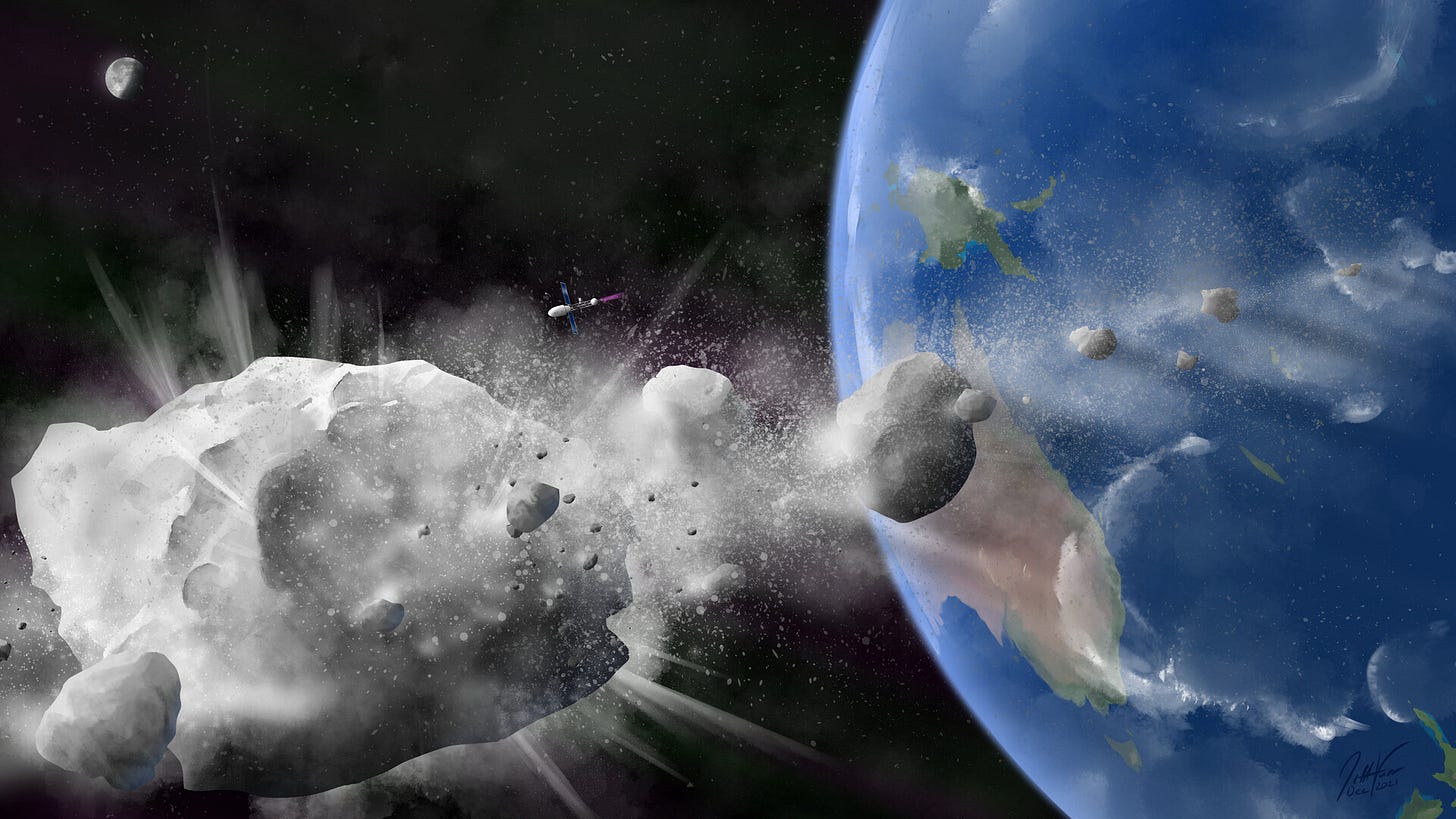The other day, one of Little Bean’s friends mentioned something about the moon hitting Earth. I don’t know where it came from, but dinosaurs were brought up and oceans and all manner of eight and nine year old speculation. It was an interesting conversation, considering they were basically talking about the end of all life as we know it, but in the end I’m glad they never asked me about it.
Mainly, because I wasn’t really sure what would happen if the moon hit Earth. Aside from, you know, all of us and everything dying.
So I looked it up, and while I’m not Neil deGrasse Tyson, I was delighted to learn that it seems like the moon wouldn’t actually be able to hit the Earth - a least not all at once - because of a thing called the Roche Limit.
Now, I spent all of, like, ten minutes researching this so if there are any astrophysicists out there, please, please, fill in my ginormous gaps of knowledge here.
But as near as I can figure, the Roche Limit (named after 19th Century French Mathematician Édouard Roche) is the distance that one larger celestial body will disintegrate a second smaller celestial body because of gravity and what-not.
In other words if the moon was suddenly hurtling toward Earth it would get within about 9,500k and then the Earth would pull it apart and the moon would become a lovely series of orbiting rings around our planet.
Good news, right? Nope. Because then we’d experience an unending shower of non-stop plunging moon chunks slamming into Earth, even as the thermal energy from the busted up moon heated up our atmosphere and turned the very air into an unlivable Hellscape.
Anyway, fun right? Glad the kids didn’t ask me. FYI, don’t see the movie Moonfall. It’s just… all wrong.





Watched a deGrasse show once. Scientists speculate (key word here) that the sun, being just an oversized nuclear reactor, will actually burn itself out in a few million years. It just makes me understand that there is an end to "us" eventually.
Amazing the things children come up with to ponder! Maybe she'd be interested in visiting the science center in Concord sometime.